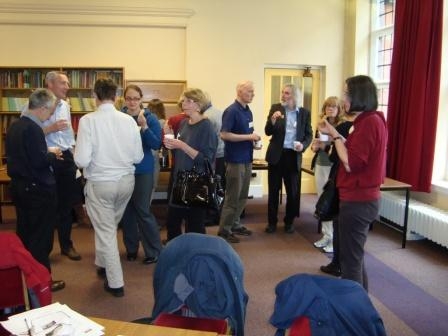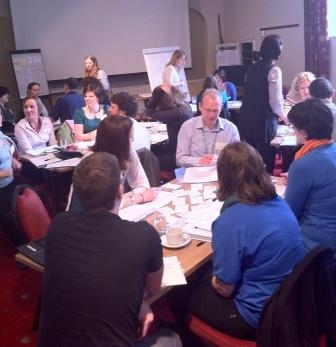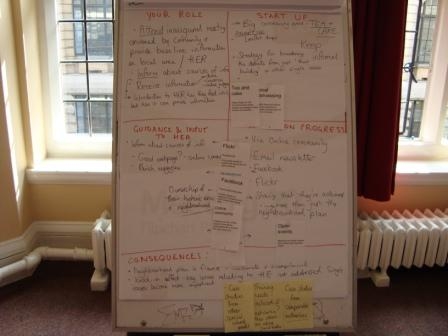|
Local Engagement Workshops: Summary
Birmingham, 24 April and York, 26 April 2012

English Heritage, supported by the Institute of Historic Building Conservation (IHBC) and the Association of Local Government Archaeological Officers: England (ALGAO), along with the digital media agency, sounddelivery, ran training workshops in Birmingham and York for Historic Environment professionals to look at ways in which they could engage local communities in the work they do and to see what role social media can play in achieving that goal.
The workshops follow-on from the HER21 programme: a five year strategy to assist local authorities to develop their Historic Environment Records (HERs). The HER21 programme has looked at projects which showed potential for community and voluntary involvement and also piloted remote access to HER data for conservation officers and the public. The aim of these workshops was to explore our role in local engagement and to share a range of approaches to both traditional communication and a look at how to make the most out of social media to interact with communities.
We are working on a full Evaluation Report and will post the link when this is available.
|
Some of the things you said:
Excellent day- very informative with loads of subjects to think about
Really positive comments from around the room
Lots of ideas, examples to work with and good opportunities to network and find out what other HER/organisations are using social media
Good practical discussion in afternoon, focussing on issues current in our work.
I feel I have a better understanding of how to use social media alongside more traditional methods of communication
Made me consider how best to do it [local engagement] rather than whether to do it |
Overview of the day
Session one
Local engagement: how do we do it?
- Link to handout
Session two
Social media basics
- Link to handout
Group Activity
Each group was given a scenario and a set of ‘tool’ cards

|
Scenario 1
Your local authority aims to work more closely with residents across several local areas to prepare character statements that highlight the key features of the local historic environment. These will then be used to identify heritage assets for the development of a local list.
The character statements will also provide a more general evidence base that identifies the value of the historic environment as seen by its community.
The project is keen to engage residents living on post-war housing estates.
|
|
Scenario 2
In preparation for the upcoming centenary in 2014, your local authority is working to improve its record of the remaining archaeological and architectural evidence of the First World War on the home front, and its current condition.
As part of this work, local communities and individuals will be encouraged to identify, record, and monitor the condition of First World War Legacies within their area and report the information to the HER.
|
|
Scenario 3
Local parishes in your area are keen to develop neighbourhood plans with information about the historic environment including management options.
Your local authority wishes to develop an outreach strategy that informs them where they can access information and how they can research and find out more about the past in their area.
They then will be encouraged to feed this information back to the HER |

The task
Read through the project scenario. You have also been given a set of tool cards; each has an allocated budget point.
Your total budget for the project is 10 points.
Your aim is to stay within budget to complete the task!
1. Agree the input role of the historic environment professionals
2. Choose a selection of tools from the cards to help you:
- At the project start up, encourage people to become involved
- Provide guidance for people taking part and mechanisms for information to be submitted to the HER
- Report on progress of the project to the wider community
Remember to stay within budget!
3. What are the possible consequences for your organisation and the local historic environment if you don’t involve the community in your project?
4. What training and/or mentoring help do you/does your organisation need to develop skills in community participation?
Each group was then invited to feedback:

Other workshop resources
We asked for your suggestions and ideas to share, including: links to useful resources; project links; and thoughts on training requirements. Please continue to add to these by sending details to sarah.maclean@english-heritage.org.uk
Current resources:
- Contact list (delegates and facilitators) for Birmingham Workshop
- Contact list (delegates and facilitators) for York Workshop
- Quick reference guide to resources
More to follow!
Read more on Storify
We captured feedback from the day through tweets using a specially created hashtag #histenviron and through short audio interviews and pictures.
These can be viewed at http://storify.com/Heritage/social-media-training-for-local-engagement-heritag
We hope that conversations, debates about local engagement in our work will continue beyond these workshops.
|